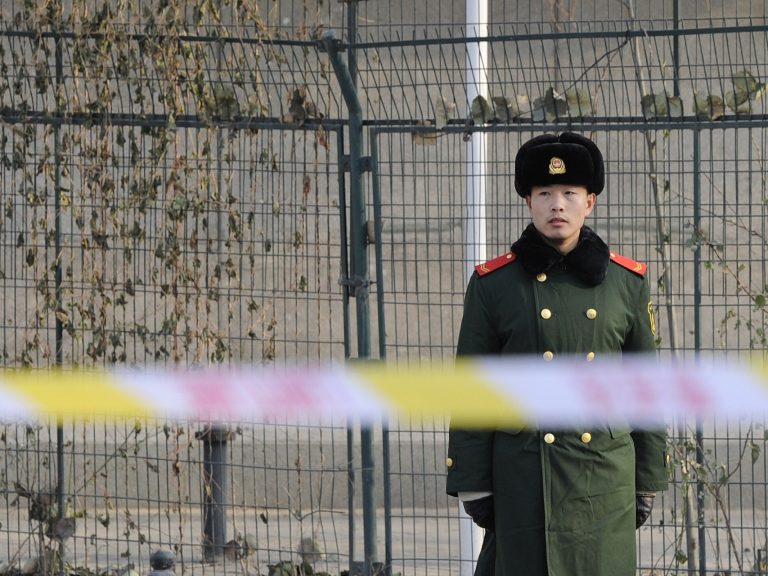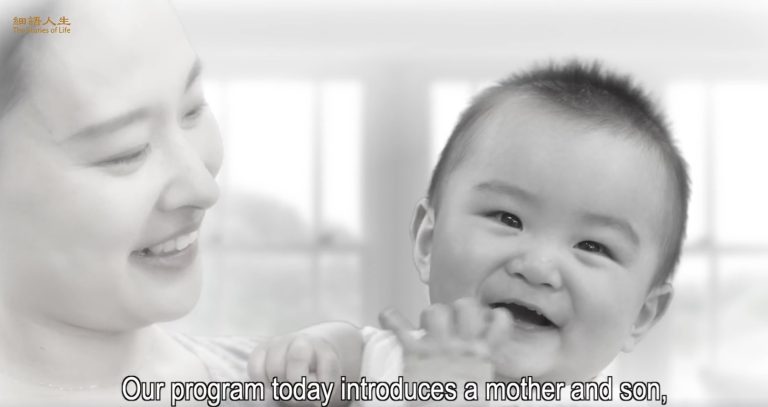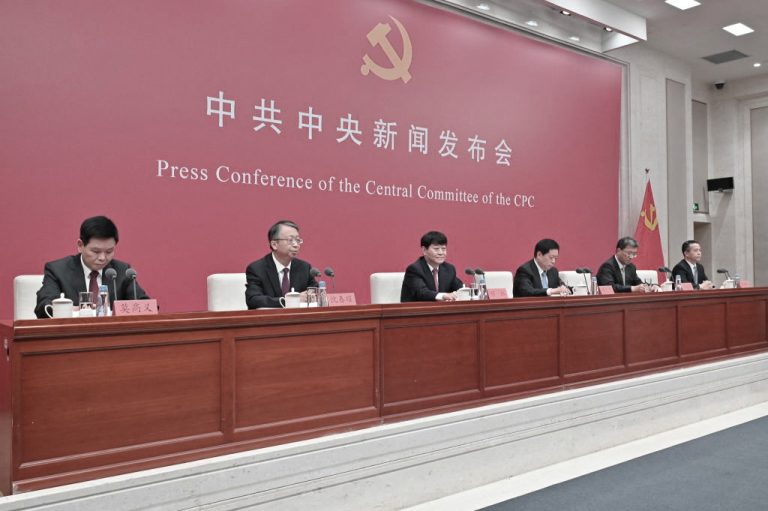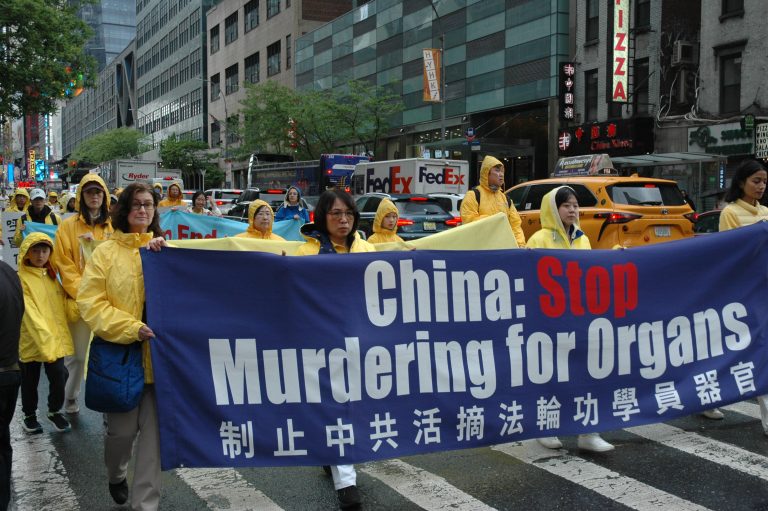A report by human rights NGO Safeguard Defenders, was published on June 22 exposing the Chinese Communist Party’s “residential surveillance at a designated location” (RSDL) prisons and the conditions and treatment captives must endure while held in these secret locations.
The 24-page report, titled “Locked Up: Inside China’s Secret RSDL Jails,” is an “illustrated deep dive into the dark reality” of a sprawling prison system and detention protocol that was first established in 2013.
The report is an amalgamation of first person accounts by previous prisoners of these black sites.
“This little-known custodial system is a legalized form of black jail, where victims are disappeared by the state into incommunicado isolated detention for up to six months, sometimes more.” reads the report.
Prisoners are held without charge and are afforded little or no legal representation.
Apprehended and swept away
Success
You are now signed up for our newsletter
Success
Check your email to complete sign up
RSDL, which is billed as a form of house arrest, officially appeared soon after current Chinese leader Xi Jinping stepped into office in 2013. Its introduction dovetailed with Xi’s abolition of the infamous “reform-through-labor” camps, but detention similar to RSDL had existed informally in the form of “black jails” — a reference to hotels, apartments, offices, and other such venues where the CCP’s security state would secretly hold detainees ranging from troublesome petitioners to adherents of persecuted faith groups.
A detainee’s experience in the RSDL prisons almost always begins with a surprise visit by the domestic security police. “They might bang on the door at midnight, break the lock with a drill or get the building security guard to pretend something’s happened to your car to lure you out of your apartment.”
After being apprehended, typically with little explanation, a detainees “first stop is often a police station, where you may stay a day or two locked into an interrogation chair (also known as a tiger chair) while the police decide whether or not to use RSDL.”
A stifling black hood is utilized on detainees during transportation to and from detention locations in order to keep prisoners disoriented and unable to determine their location.
Submission and cooperation
One RSDL detainee mentioned in the Safeguard Defenders report is Li Qiaochu, activist and girlfriend of prominent dissident Xu Zhiyong. In a document translated by human rights website China Change, Li described being quartered in a “guest home” where she was made to sit perfectly still for hours on end, while young “robot-like” policewomen watched over her.

“I needed to maintain a fixed posture even when sleeping, with hands, shoulders, and head outside the covers and visible. If I shifted after falling asleep, I’d be awoken,” she wrote.
“They succeeded in making me submissive and cooperative — a willing partner of theirs to disgrace and humiliate myself. Everyone — the captors, the interrogators, the guards, and the post-release minders — existed to reinforce me with the idea that I was their captive and could never escape.”
RSDL facilities vary by location. Detainees can find themselves in a custom-built facility, a remodelled detention center, a police training center, guesthouse or apartment complex.
Locations of these prisons have been identified throughout the country, including in Beijing, Tianjin, Shaanxi, and Guangdong.
A notice of detention is required by law to be provided to a detainees family, or in the case of a foreigner to their local embassy, however this step is often omitted leaving families and other interested parties in the dark concerning their loved one’s location and wellbeing.
These facilities are constructed like small apartments, containing a sparsely furnished specially built cell for detainees, an interrogation room furnished with a ‘tiger chair’, and facilities for two guards who are almost always present.
A day in RSDL
A typical day in detention is entirely regimented by the prison authorities including hours long interrogations where prison guards attempt to elicit confessions using torture or painful restraint methods that often last hours or even days. “You are watched not only by the guards but half a dozen surveillance cameras that capture the entire room, sometimes, including the bathroom, as if to deny you even the tiniest scrap of dignity.”
Xie Yanyi, a previous detainee in RSDL, told Safeguard Defenders, “Every day I heard interrogations, howling, and moaning in the middle of the night in the room above me. That was when I decided that I absolutely had to control myself, find a way to get out as early as possible, and expose this torture.”
While completely isolated from the outside world and going months without any outside contact, the boredom is described as “excruciating” leading many detainees to welcome interrogations.
Many victims of the detention mull suicide however the cells are constructed in a manner that makes that manner of escape impossible.

A detainee’s release is determined by whether or not police pursue charges at which point a detainee is either released or is transferred to a long term detention center.
Detainees are imprisoned for up to 6-months, sometimes longer, and are forced to sign dubious legal documents prior to their release agreeing not to reveal any details about their captivity or to give interviews to media.
Many detainees reported being monitored for months after release.
It’s estimated that between 27,208 and 56,963 people have fallen victim to the RDLS facilities since their inception in 2013.
Spavor and Kovrig
Michael Spavor and Michael Kovrig, two Canadian nationals, were swept up by the RDLS system in 2018 and are referenced in Safeguard Defenders report.
“Neither man has seen sunlight, breathed fresh air or seen so much as a tree or patch of grass since their detention,” the report reads.
Michael Spavor, born in Calgary Alberta, Canada, is suspected of being detained in an RDSL since his arrest in December 2018.
He was arrested on charges of endangering state security; charges widely interpreted as retaliation for Canada’s arrest of Huawei executive Meng Wanzhou.
Similarly, Michael Kovrig, a former Canadian diplomat who worked for the International Crisis Group, a pro-peace think tank, was apprehended and placed in an RDLS in December 2018 and was charged with questionable crimes related to espionage.
Canada’s Prime Minister, Justin Trudeau, has called the detention of Spavor and Kovrig, “arbitrary.”
On March 19, 2021, a two-hour closed court hearing for Spavor ended with no immediate verdict. A similar proceeding occured two days later for Kovrig with an identical outcome.
It’s widely speculated that the two men are imprisoned as part of a hostage diplomacy scheme by the CCP with the goal of obtaining the release of Meng Wanzhou who is currently under house arrest at a luxury home in Canada’s province of British Columbia.
Meng’s movements are restricted until Canadian courts determine whether she can be legally extradited to the U.S. to face charges of breaching international sanctions.
In early 2020, American basketball player Jeff Harper got caught up in the RSDL system when he was detained by the Chinese authorities for intervening in a fight between a couple. Harper spent five months in RSDL and described the isolation as being “one of the hardest things for the human mind” to tolerate. He was released last September.







